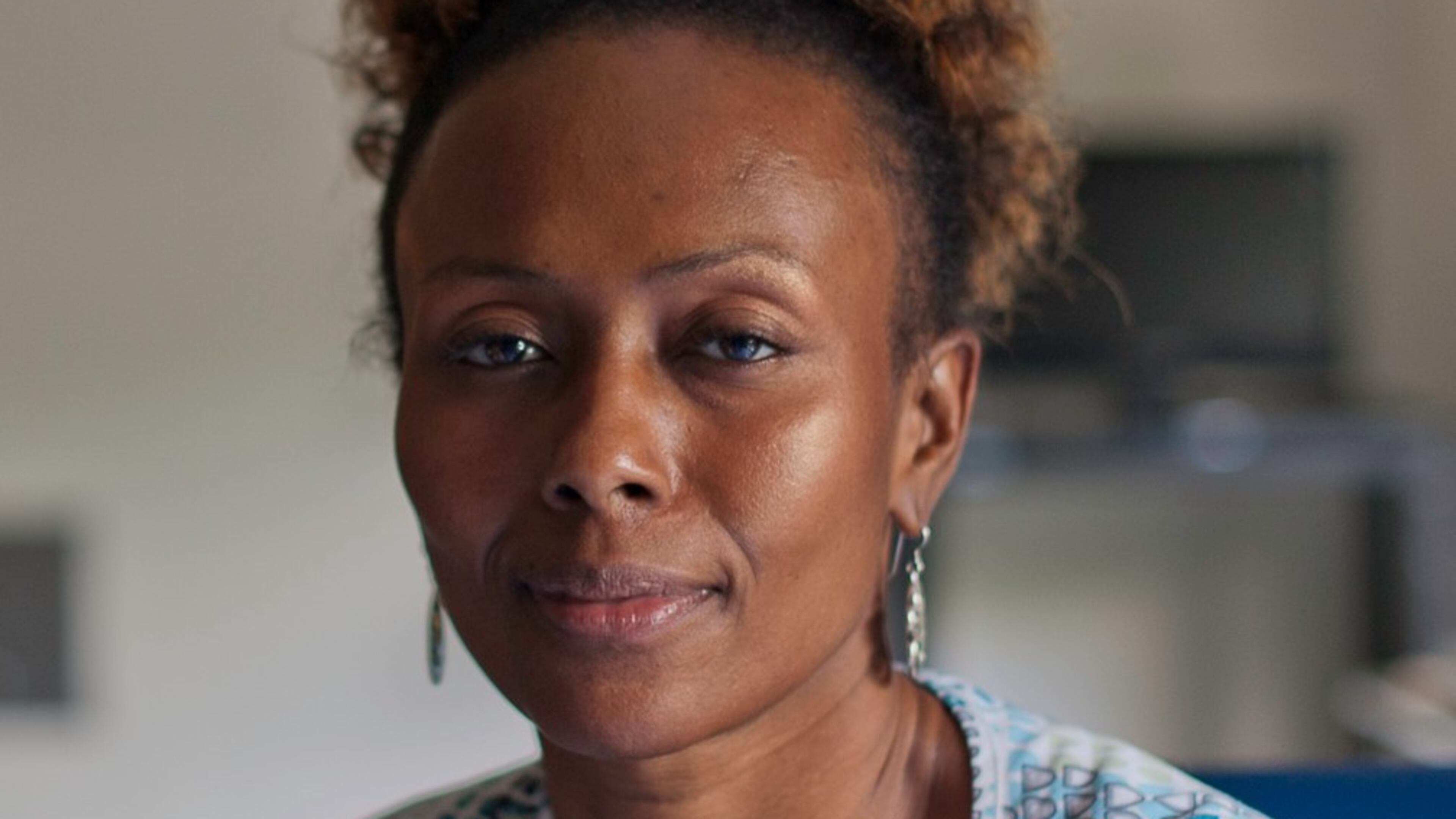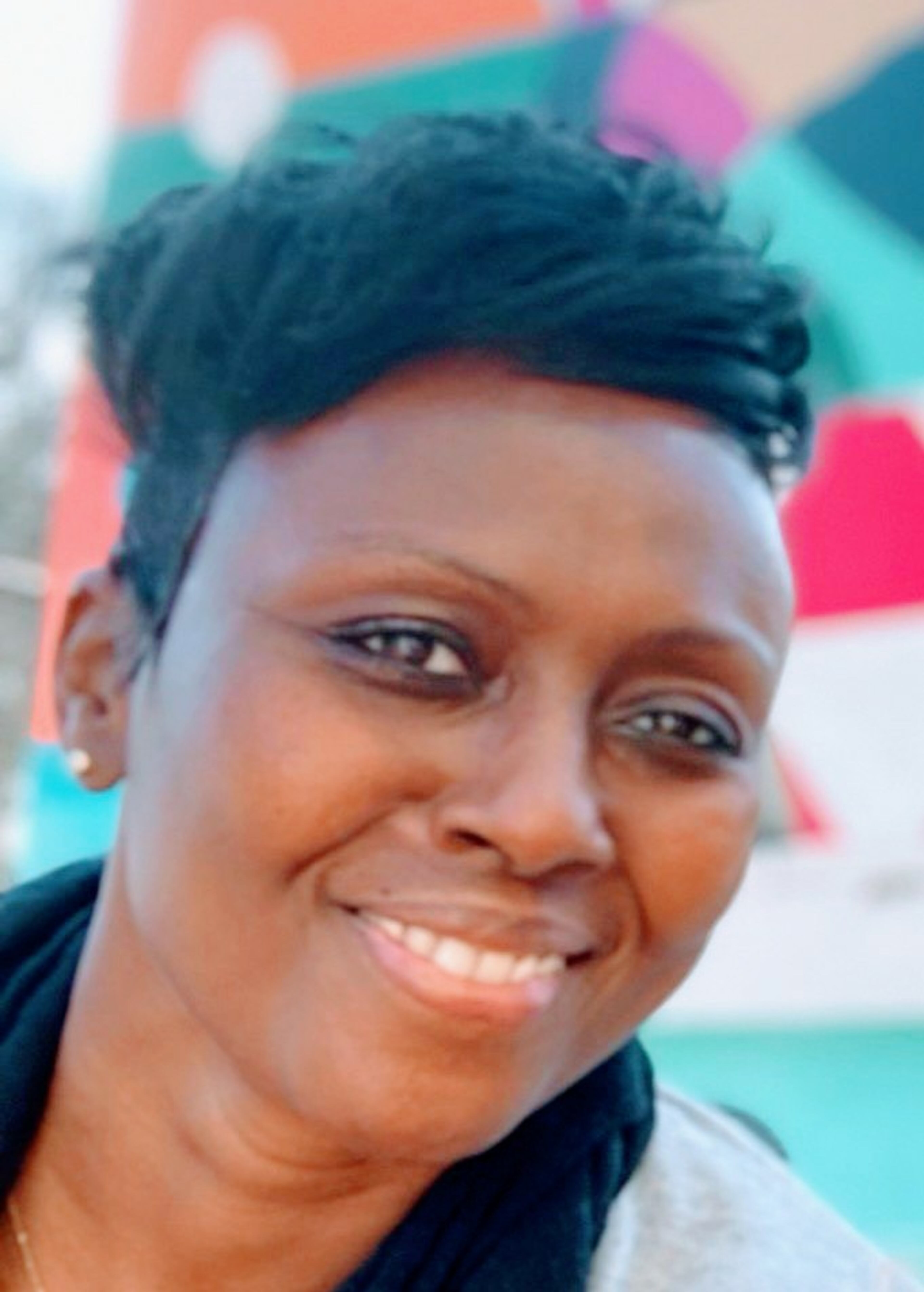NICU nurse cares for critically ill babies while calming parents’ fears

By Andrea Clement
Monique Edgecombe always knew she wanted to work with children. She also dreamed of becoming a nurse. As an adult, Edgecombe is now 12 years into her thriving career as a NICU nurse, which perfectly combines her love for working with children and her passion for the nursing field.
Her journey to becoming a nurse was extensive and included a few stops and starts along the way. She entered nursing school immediately after finishing high school, then unfortunately had to drop out before completing the program due to extenuating circumstances.
“It devastated me at the time [to leave nursing school]. For years I’d yearned to become a nurse,” Edgecombe recalls. Ten years later, fate would help get her back on track to her nursing career. Edgecombe’s nephew was born prematurely, weighing only 1 pound, 2 ounces at 23 weeks in utero, and therefore he was immediately admitted to the NICU.

“I saw my sister and her husband endure the most difficult year of uncertainties, heartaches, and debilitating fears,” Edgecombe states. She was inspired, witnessing the efforts of the incredibly talented NICU nurses. “These kind and compassionate ‘angel’ nurses comforted, educated, celebrated, and advocated with, and for, my nephew and family,” Edgecombe says. To her, the team of NICU nurses seemed “extraordinary [and] larger than life, [like] angels in human form,” she recalls.
Edgecombe was so impressed with how the nurses cared for her tiny baby nephew that she aspired to become health care heroes like them, to one day help babies and their families in need of critical care. Edgecombe is happy to report that her nephew was finally able to come home from the hospital after five months; he is now 23 years old and healthy, thanks in large part to those heroic NICU nurses.
Today, Edgecombe is living out her dream of providing the best possible care to babies and supporting their families in the NICU at Children’s Healthcare of Atlanta.
Angela Hawthorne, who has a master of science degree and is a clinical nurse expert, works with Edgecombe at CHOA’s Scottish Rite NICU. Hawthorne has observed firsthand the quality of care Edgecombe provides and the level of emotional support she offers to the babies’ families as well as the patients themselves. “Monique has a strong history of helping babies with difficult family situations,” she says. “Monique is extremely kind, tenderhearted, and has no problem showing love not also to her babies she cares for, but also to [the babies’] parents.”
One particular patient made a major impact on Hawthorne and her NICU team, including Edgecombe. “Kaiden came to us from an outlying NICU, intubated and dependent on a ventilator,” Hawthorne recalls. The 23-week preemie had a history of severe lung disease and his physician had recommended a tracheostomy. Kaiden’s mother was a young single mom who had lost her own mother at an early age, and she only had one aunt left in her family. According to Hawthorne, “it didn’t take long for Monique to develop a strong relationship with Kaiden’s mother,” and [she] helped her to become strong enough to persevere through the stressful medical situation with her premature baby.
Throughout the extreme highs and lows of Kaiden’s stay, Edgecombe provided strength and support to the baby’s young mother, until her baby was able to go home healthy, Hawthorne says. “He eventually went home without a vent or a trach, with a very confident mother to care for him.”
“My time in the NICU with Kaiden and his mom exemplified everything that I prayed to God to allow me to do and be for these babies and families,” Edgecombe says. “I asked God every day, ‘please Lord, place healing and love in my hands.’” She did her best to provide that intensive care to Kaiden’s mother, helping her to eat, nap, and looked in on Kaiden when his mom was away. “He is my special boy!” Edgecombe exclaims. “He overcame all of his challenges and made it home in December at 11 months old, with brilliant collaborations of physicians, excellent medical care, dedicated nurses, and lots of prayers.”
Patients like Kaiden and his mother ultimately are what make nursing worthwhile and rewarding for Edgecombe. “At the end of each workday, I know that I have been there to comfort a baby or hug a mom” in need, she says. “I love that I get to be a part of people’s lives when they are most vulnerable. I know that I can be strong for them, with a soft place too… I care deeply and can share that with patients.” Additionally, Edgecombe sincerely values the “ethics and dignity of nursing and patient care . . . we are educated to heal holistically and to put patient needs first,” she says.
No nursing career comes without challenges. “The toughest thing about being a nurse is that you can’t save everyone,” says Edgecombe. “Not just in speaking about life and death, but sometimes you can’t reach a person’s ‘personal’ hurt. The grief that patients and parents endure is deep. As a nurse, we are trained to help, and we can be a support, but at times it is hard because you can’t make it better,” she continues. “Another challenge is seeing babies alone for days, weeks, months in the hospital all alone, and you can’t influence parents to visit their babies more often.” Edgecombe’s heart breaks for these babies because a nurse can’t replace a baby’s parents. “Even when nurses do their very best to be a mommy for babies who are alone in the NICU, it’s not enough.” NICU babies need their parents. Edgecombe would like to see changes in legislation and in the workforce that would allow NICU parents more family time off to be with their baby, as well as economic and educational changes to help improve the perceptions and the reality of parenting in the NICU.
The coronavirus pandemic has added a level of difficulty to an already challenging career. Social distancing and masks have made connecting with patients and their parents more complicated than ever, but Edgecombe and her team have tried to work around the obstacles to the best of their abilities. “I’ve had to work on perfecting [how to] smile with my eyes,” she explains, and as a self-described “hugger,” she has had to adjust and find other methods of connecting, providing comfort through verbal cues and smiling eyes.
Edgecombe is grateful for the intrinsic rewards of nursing, as well as the awards and recognition she has earned throughout her career. Additionally, her greatest accomplishment is recently completing her Bachelor of Science and Master of Science in nursing, which she says really helped to boost her nursing abilities, building her confidence and self-assurance in ways she didn’t realize she needed. She found school to be exciting and engaging and enjoyed applying all of her new knowledge to her patients and families. “What I am most proud of is that I’ve found my purpose in life,” she concludes.


